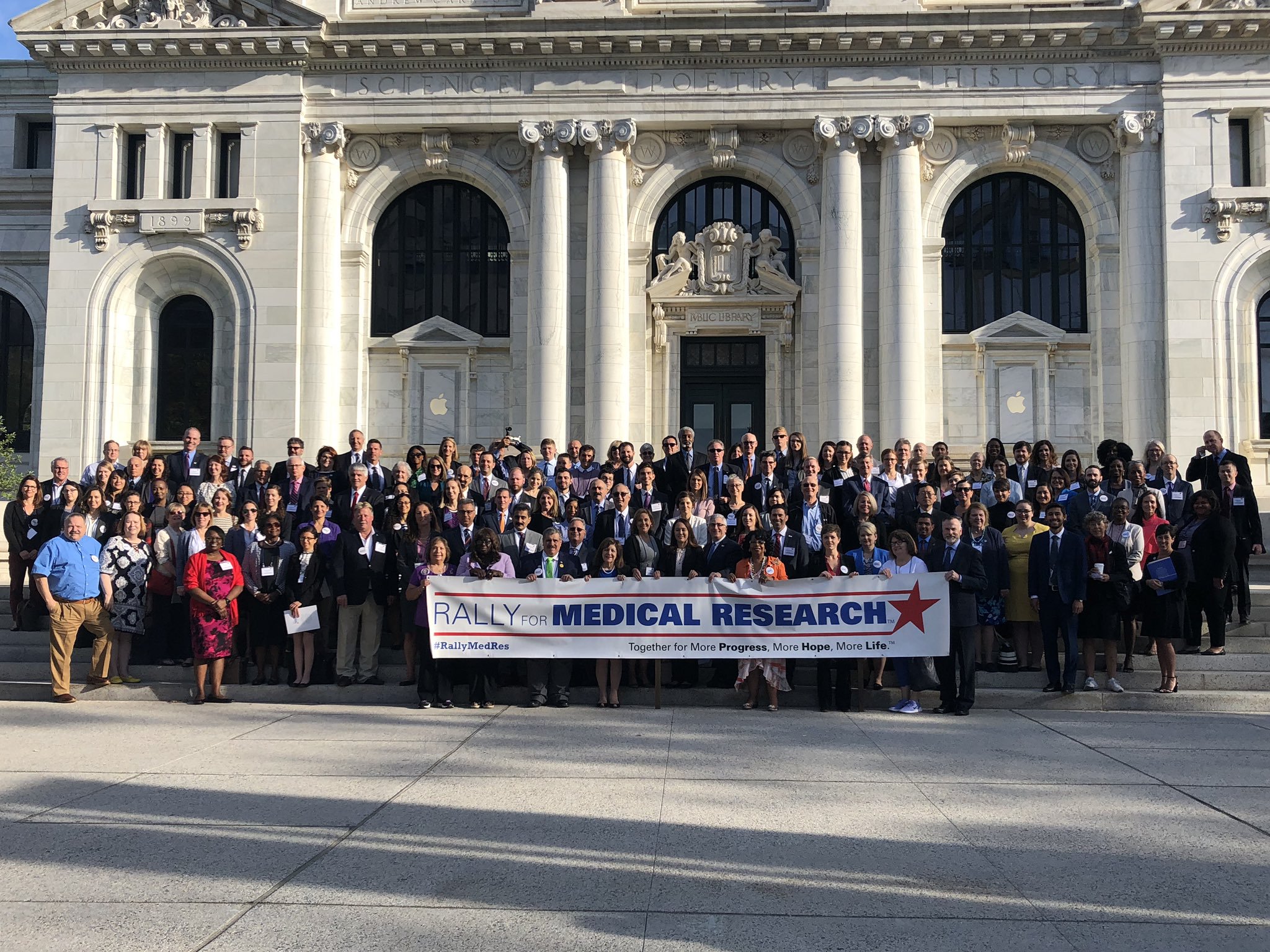After months of bargaining and numerous stalemates, the House of Representatives and Senate reached agreement on Fiscal Year 2020 appropriations just before funding expired on December 20. The deal also provided a “Christmas Tree” legislative vehicle for various policy measures.
The spending deal was divided into two packages of individual bills covering funding for every federal agency. Funding for the National Institutes of Health (NIH) and other health programs was included in an eight-bill spending package (HR 1865) of mostly domestic programs. A separate four-bill package (HR 1158) contained the Defense, Commerce-Justice-Science, Financial Services, and Homeland Security measures.
In a big win for the Endocrine Society advocacy, the domestic funding bill included record funding for the NIH, which will receive $41.7 billion, a $2.6 billion or nearly 7% increase over last year. We strongly advocated for the last year for at least a $2 billion increase for the NIH. We conducted multiple Hill Days, visits to congressional offices, educational briefings, and online “grassroots” campaigns. We also provided testimony to the Appropriations Committees discussing the value of NIH research and advances in endocrine-related research and we joined with other research organizations in a rally for medical research.

In addition, the spending measure carries numerous other policy initiatives that could not pass on their own. It extends funding for several health care programs, including the Special Diabetes Program, through May 22, 2020, which is intended to create pressure for a Memorial Day deal on comprehensive legislation to reduce prescription drug prices and crack down on surprise out-of-network medical billing. Both of those efforts ran out of steam in the last few weeks as the House and Senate could not agree on details. It is often difficult to enact legislation during an election year, so having a deadline for popular health programs could be a crucial factor driving momentum for any healthcare legislation in 2020.
A bipartisan drug pricing measure (HR 965), which lawmakers have been pushing for years that would make it easier for generic drug companies to access samples of brand-name drugs, was also included in the deal. Lawmakers hope other provisions could lead to lower prices for insulin, an issue we have kept before Congress all year.
Republicans and the White House got some other health-related wins in the spending agreement. For example, the final legislation did not include additional family planning funds or policy riders that would loosen abortion restrictions. Republicans also touted the removal of gun control-related policy language sought by Democrats, though the latter secured $25 million to research gun violence.
The border wall battle, which led to a 35-day government shutdown in late December 2018 and early January 2019, was defused in part by an agreement to largely keep the status quo, along with no additional restraints on the president’s “transfer authority” to shift prior funding to the wall-building effort. Republicans also preserved White House flexibility to build barriers in more places than the fiscal 2019 spending measure allowed.
As of this posting, President Donald Trump is expected to sign the bill, although its funding is significantly higher than his original budget request.
In January, when Congress returns from its holiday recess, an impeachment trial is expected to begin in the Senate, which will last weeks and distract senators from legislative business. However, we will begin our advocacy for fiscal year 2021 funding and continue efforts to call on Congress to address insulin pricing and further extend SDP.

